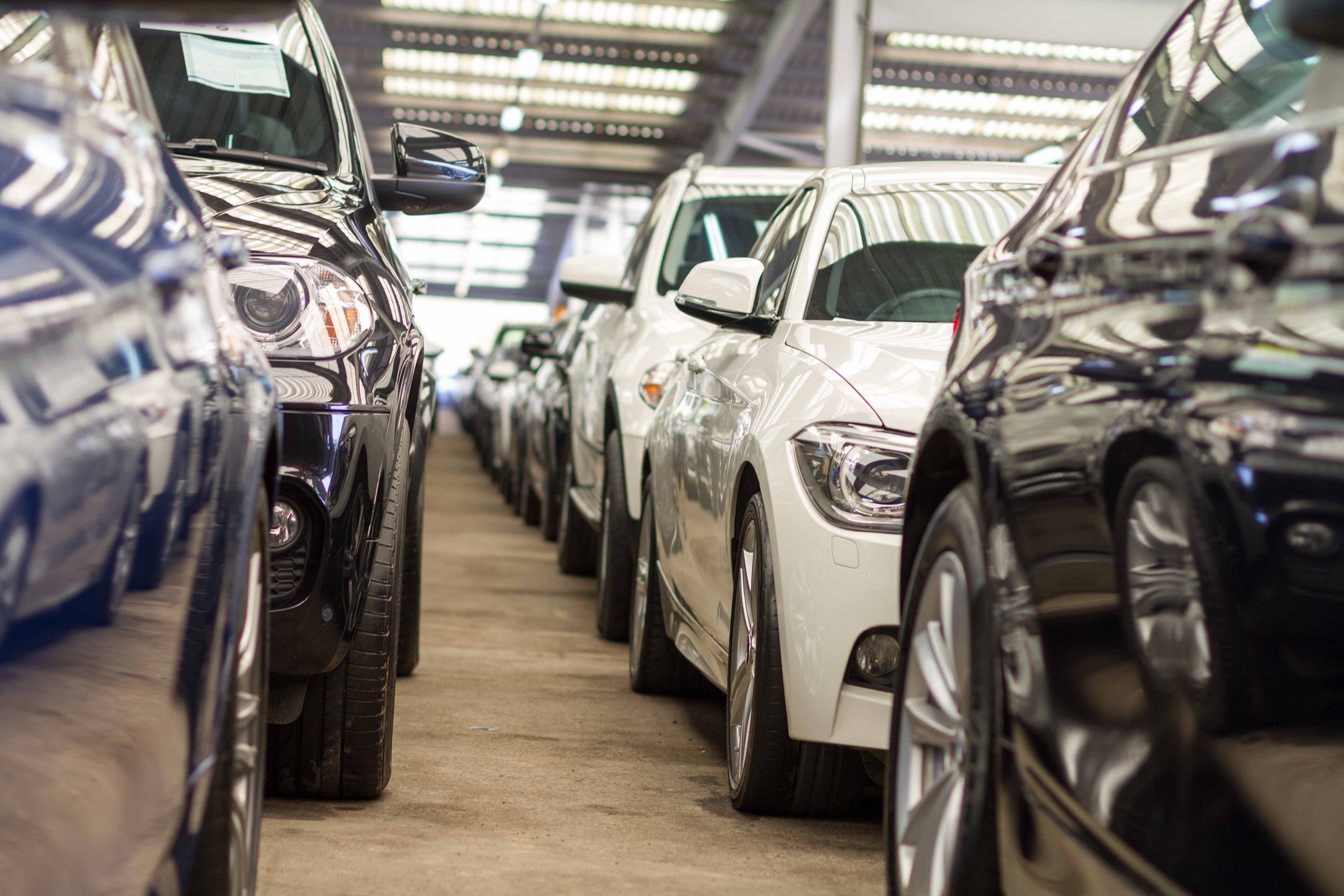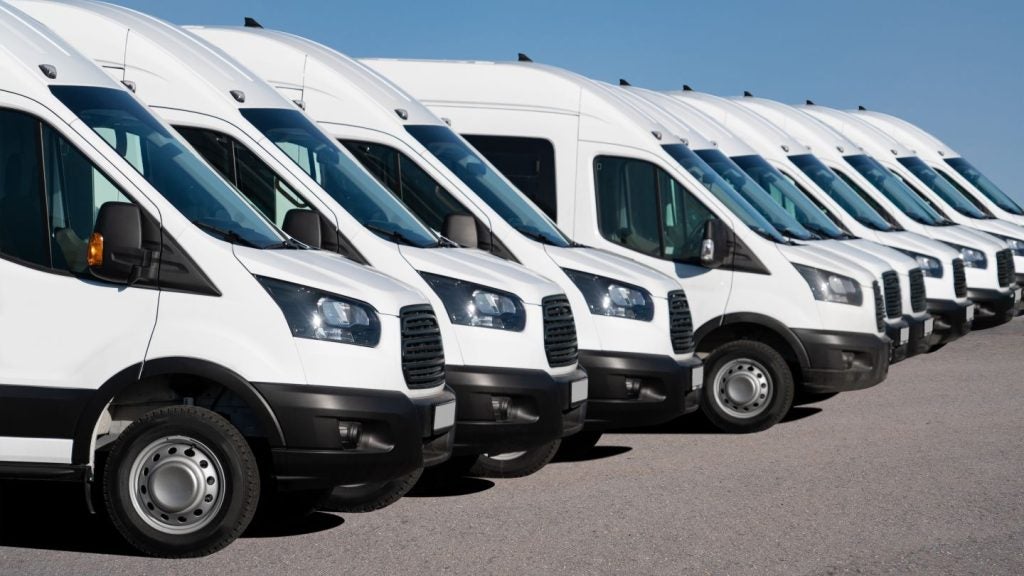
UK new car registrations declined by a record 97.3% in April due to the coronavirus crisis, according to the Society of Motor Manufacturers and Traders (SMMT).
Just 4,321 new cars were registered in the month, some 156,743 fewer than in April 2019, with many delivered to key workers and front-line public services and companies. The decline was the steepest of modern times, and is in line with similar falls across Europe, with France 88.8% down and the Italian market falling 97.5% in April.
Fleet orders represented by far the bulk of the market, taking 71.5% market share, equivalent to 3,090 units, while private buyers registered just 871 cars – a year-on-year fall of 98.7%. The distortion was reflected across all segments and fuel types, with the numbers of new petrol and diesel cars joining UK roads down 98.5% and 97.6% respectively, as plug-in hybrid vehicles (PHEVs) declined 95.1% and hybrids (HEVs) 99.3%. Meanwhile, the niche battery electric vehicles sector saw a smaller percentage decrease of 9.7%, as some pre-ordered deliveries of the latest premium models were able to be fulfilled.
Despite showrooms being closed for the month of April, companies managed to support key workers, critical companies and frontline services. Meanwhile, the industry has continued to keep service and repair workshops open to maintain vehicles that are so crucial in keeping key services, goods and people moving safely across the country.
The news comes as SMMT releases its latest new car market forecast for 2020, downgrading previous expectations to just 1.68m registrations. This puts the sector on course to record its worst performance since 1992’s 1.59m units, below the levels seen during the financial crisis and some 27% lower than the 2.31m new cars registered in 2019. Despite this, the BEV market is expected to double in 2020 to 77,300 units as new model introductions bolster the market.
Mike Hawes, chief executive of the SMMT, said: “With the UK’s showrooms closed for the whole of April, the market’s worst performance in living memory is hardly surprising. These figures, however, still make for exceptionally grim reading, not least for the hundreds of thousands of people whose livelihoods depend on the sector. A strong new car market supports a healthy economy and as Britain starts to plan for recovery, we need car retail to be in the vanguard. Safely restarting this most critical sector and revitalising what will, inevitably, be subdued demand will be key to unlocking manufacturing and accelerating the UK’s economic regeneration.”
How well do you really know your competitors?
Access the most comprehensive Company Profiles on the market, powered by GlobalData. Save hours of research. Gain competitive edge.

Thank you!
Your download email will arrive shortly
Not ready to buy yet? Download a free sample
We are confident about the unique quality of our Company Profiles. However, we want you to make the most beneficial decision for your business, so we offer a free sample that you can download by submitting the below form
By GlobalDataIndustry reaction
Stephen Haddrill, director general of the Finance & Leasing Association, said: “While the measures to control the spread of coronavirus are entirely necessary, the SMMT’s figures show the stark reality of lockdown not just for motor manufacturing, but also for the associated sectors that work alongside it.
“FLA members have been providing unprecedented levels of support to customers whose income has been disrupted, but the cost of doing so is causing severe strain on firms as new lending in this market has been affected by the closure of dealerships. Our figures for March, to be released later this week, will show that consumer motor finance new business volumes fell by 27%.
“Government help is needed to ensure that the non-bank lenders in this sector have access to funding so they can continue to support customers, but also begin lending again as we emerge from lockdown.”
Sue Robinson, director of the NFDA, said: “Despite these figures, many franchised dealers continued to deliver aftersales service to key workers and the industry is now working hard to enable trading to restart with all necessary measures in place. NFDA has been talking to the relevant Government departments and manufacturers to ensure work can commence safely for the benefit of dealerships’ staff and customers.
“Over the coming months, it will be vital to evaluate a support package that stimulates the market and ensures the long-term stability of a sector which is key to the UK economy and provides employment to thousands of people.”
Seán Kemple, director of sales at Close Brothers Motor Finance, said: “When the lockdown does begin to lift, we should see pent-up demand released, triggering a sharp rise in sales of the cars sitting in showrooms; we’ve already seen this in the European used car market as dealers review and reprice their stock after lockdown.
“But after an inevitable uplift, the future is less certain. We might start to see supply issues, held up by restrictions on manufacturing and the stalling of overseas shipment. In the longer-term, demand trends may change. We know that in times of economic hardship, buyers often shift from new to used cars in order to get their hands on a more affordable vehicle.”
James Fairclough, chief executive of AA Cars, said: “The industry’s eyes are firmly on the Government’s next move, with dealers watching closely for any sign of an easing of the restrictions or further support for businesses forced to close. The big question is what will demand from consumers be like when dealerships are allowed to reopen.
“Those consumers who are in the market to buy a new car when the lockdown period ends may find there are some very competitive deals and offers available to facilitate their purchase. However, at the same time, it is unclear whether the same levels of credit will be available to potential customers who want to use car finance options. Lenders committing to continue offering finance to new customers will play an important role in allowing sales to recover.
“For other consumers, a new car purchase will now understandably be much lower down on their priority list – especially for those struggling with direct economic consequences of the pandemic, or those with reduced job security.”
Michael Woodward, UK automotive lead at Deloitte, said: “For UK consumers, as showrooms begin to reopen it could also be a good time to find a bargain. Manufacturers have significant inventory of cars ready for sale, but may be struggling with their cash flow. As a result, big discounts may reappear on the forecourt in the short-term, not only to release inventory but also get the supply chain moving again.
“When factories reopen, efficiency and productivity is unlikely to return to pre-lockdown levels immediately, as businesses accommodate the need for social distancing measures in plants, for example. Significantly, whilst the rest of the market saw sales fall by over 90 per cent, battery electric vehicle sales only fell by 10 per cent in April, achieving a market share of 32 per cent.”
Karen Hilton, chief commercial officer at heycar, said: “These figures come as no surprise as we enter week seven of the national lockdown. Online at heycar, we are seeing evidence that lockdown is creating a surge in interest among motorists while they are confined to their homes – with more and more browsing online and researching their next vehicle.
“Lockdown has also given people time to reflect on their way of life and we wouldn’t be surprised to see them increasingly opting for the safety and solitude of their vehicles post-lockdown rather than crowded buses or trains.”
James Hind, chief executive of carwow , said: “At carwow in Germany we have seen a strong bounce-back since lockdown was lifted there and dealers were allowed to open. For many consumers buying a new car is driven by their past finance agreement coming to an end, and with 80%+ of new cars being bought on finance, most consumers are now locked into a regular buying cycle.
“Consumers choosing to buy now will benefit from quick delivery times, as dealers and manufacturers have lots of cars in stock, however once that stock is sold, consumers may be in for a long wait due to factories being shut or operating at reduced capacity.”







